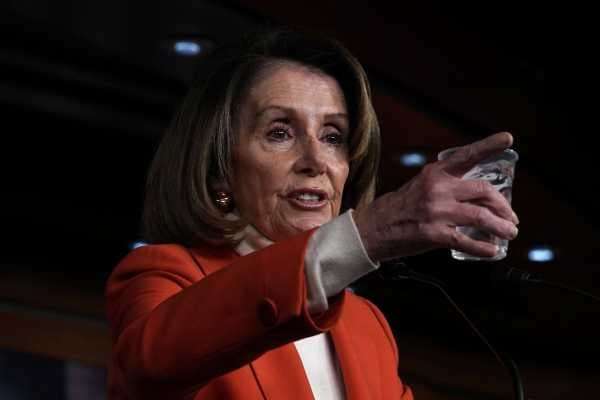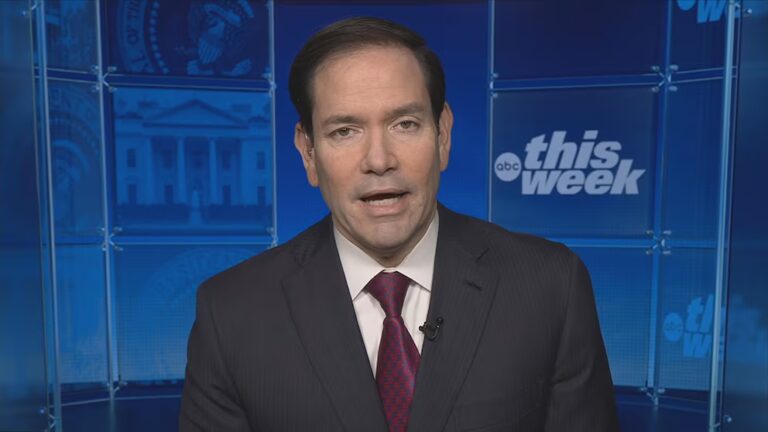
A preliminary vote Wednesday by House Democrats all but ensures Nancy Pelosi will soon take back the speaker’s gavel, despite a years-long rebellion against her.
The anti-Pelosi faction wants someone else to lead the party, but they have neither a real substantive objection to Pelosi (whose politics, whatever you think of them, simply reflect the center of gravity among House Democrats) nor did they field an actual alternative candidate.
The complaints about Pelosi are driven by electioneering considerations. The most moderate members, who have the least-safe seats, are bludgeoned by Republican opponents with their association to the vilified Pelosi. That in turn has made centrist Democrats, rather than progressives, numerically preponderant among Pelosi opponents, which in turn has cut them off from any source of grassroots political energy or hope of winning over rank-and-file Democrats in the country or on Capitol Hill.
The tactically inept way in which the challengers mounted this campaign has confirmed the basic reality that Pelosi is an uncommonly savvy legislative leader, and that’s fundamentally the main thing you want in a speaker.
But it would behoove Pelosi as a savvy leader to address her real weakness: She should make sure that someone else is in place to serve as the unofficial national party spokesperson — someone who goes on television to argue with President Donald Trump and the Republicans.
Pelosi’s closest allies have never maintained that her great strength in politics is as a stump speaker or a high-energy television presence. Pelosi’s critics are a grab bag of conservative members, restive progressives, and newly elected members from swing districts — all of whom are united more by a lack of seniority in Congress than by a distinct ideological perspective. They don’t really have a coherent critique of her leadership or a different direction in mind; they just don’t want her to be a national lightning rod when a more effective messenger could represent them.
The speaker could be a constant presence in national media, routinely appearing on Sunday morning chat shows, firing off tweets, producing in-house web videos, headlining rallies, and dishing out pithy quotes to Washington’s top reporters. But the speaker doesn’t have to do that work. And the person who does certainly doesn’t have to be the speaker.
So to the extent that the controversy is really about who goes on television rather than who leads the party, Pelosi and her critics should try to work something out.
Nobody cares about House leadership arcana
Congress is weird, and one of the weird things about it is that people who spend a lot of time in Congress start to care about the elaborate details of congressional leadership posts.
For example, right now Rep. Jim Clyburn (SC) is “assistant minority leader,” the No. 3 position in the Democratic hierarchy. He is set to move up to majority whip, which is a higher title (leader > whip > assistant leader > caucus chair), but still No. 3 in the hierarchy because with Democrats in the majority, the speaker will outrank the leader.
Back in the real world, nobody gives a damn what Clyburn’s title is or who the chair or whip of the Democratic caucus is — most people have no idea what any of this means.
What people care about is what prominent members do: raise funds, recruit candidates, speak in public, develop policies, push factional agendas, build consensus, effectively stand in against the opposition, etc.
A model for this is House Speaker Paul Ryan. He was a prominent leader of House Republicans long before he became speaker. He wasn’t even part of the leadership hierarchy. He was Budget Committee chair and then later led the Ways and Means Committee.
He drew up PDFs and slides about Republican Party policy ideas and convinced credulous reporters to take them seriously. He became the party’s ideas man and face. He was good at it. Ryan had useful skills and he deployed those skills in a fairly consistent way, even while holding a range of roles and job titles.
In the case of House Democrats, the thing that gives members the willies isn’t the idea of Pelosi holding a gavel or having a nice office or getting to use the speaker’s special letterhead. It’s the idea of Pelosi as a constant presence in national political media whom voters back home will see as the most prominent symbol of the Democratic Party.
Nancy Pelosi is a weak communicator
When Pelosi’s allies make the case for her, none of them say that she routinely kicks ass on Morning Joe. They say she’s a prolific and tireless fundraiser, she builds consensus in a diverse caucus, she’s a shrewd legislative tactician, and she deserves credit for holding things together when the Affordable Care Act seemed to be on the verge of collapsing.
Compared to those substantive strengths, it can sound a little silly to say, “Okay, but what we really want is to kick ass on Morning Joe.”
That said, Morning Joe isn’t going away. Trump is incredibly skilled at controlling the media agenda. And since many prominent Democrats are going to spend the next 18 months running against each other for the 2020 presidential nomination, someone has to try to be a unifying spokesperson for the party.
Pelosi’s discursive style of speaking does not lend itself to sound bites. There are no viral Pelosi clips, no iconic Pelosi speeches, and no vast cheering crowds at Pelosi rallies. The speaker doesn’t necessarily need to be a high-wattage, charismatic public communicator. But — especially if she isn’t going to be those things — someone else has to step up.
There are plenty of good choices
It might be most natural to have Pelosi’s deputy step in and serve in a larger public-facing role.
House Democrats’ problem, however, is that the No. 2 and No. 3 people in the leadership hierarchy — Reps. Steny Hoyer (MD) and Clyburn — are basically identical to Pelosi in this regard. Clyburn was born in 1940 and has been in Congress for 25 years. Hoyer is a year older and has been in Congress since longer than several newly elected members have been alive. They’re products of an earlier era, and as veteran lawmakers, they’re more comfortable with congressional jargon than with mass communication.
But Democrats have a bunch of viable options in the next generation of party leadership. The task is to find someone reasonably agreeable and someone who wants to do the job in a good-faith way.
Rep. Seth Moulton (MA), for example, who’s been leading the charge against Pelosi, could conceivably do this well. But he would have to commit to genuinely speaking for the party rather than positioning himself for a Senate primary or musing about a presidential run.
Rep. David Cicilline (RI) would be a more progressive choice but, again, would have to commit to speaking for the party consensus rather than serving as a factional voice. Rep. Ben Ray Luján (NM), who spearheaded the Democratic Congressional Campaign Committee’s successful 2018 campaign and is looking to move up in leadership, seems in many ways an obvious choice to me, but he seemed to shy away from the spotlight as DCCC chair and maybe doesn’t want to do it. Hakeem Jeffries (NY), who’s also moving up in the leadership ranks today may have more aggressive instincts.
Rep. Diana DeGette (CO) who’s already given up a nascent challenge to Clyburn for the No. 3 spot, or Rep. Cheri Bustos (IL) who currently serves as co-chair of the Democratic Policy and Communications Committee, could take the reins as solo chair and step into a larger public role.
In an ideal world, the big three currently running the Democratic caucus would work on this problem as part of a larger project of crafting a succession strategy. Pelosi’s successor should probably be someone with experience in leadership, which means moving to anoint someone younger than Hoyer and Clyburn as heir apparent. And offering some kind of road map to retirement would calm the restiveness among ambitious members who are pushed to either rebel or leave the House.
But whatever Pelosi does with her future, she ought to show the wisdom of a real leader and acknowledge that there is truth in the criticism of her as a communicator and move to actually address it.
Her greatest success as speaker, after all, came when the extremely charismatic Barack Obama was in office to serve as the face of the Democratic Party, leaving her to do the work of crafting a legislative strategy.
The precise circumstances today are different, but the conceptual division of labor is sound. While it would hardly quiet all criticism of her leadership, it would do an enormous amount to address what’s driving the constant swirl of controversy.
Sourse: vox.com






